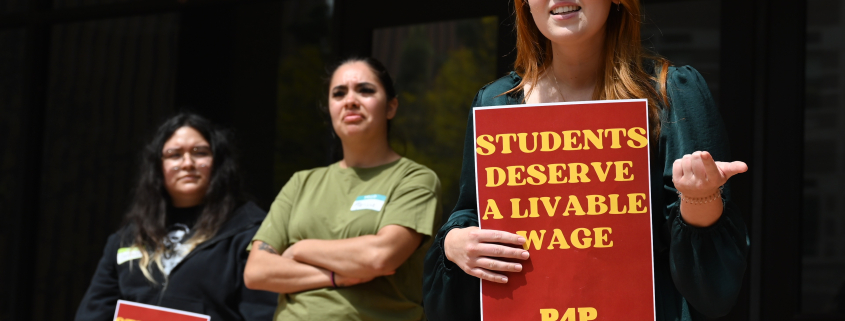Social work students call for end to mandatory unpaid internships
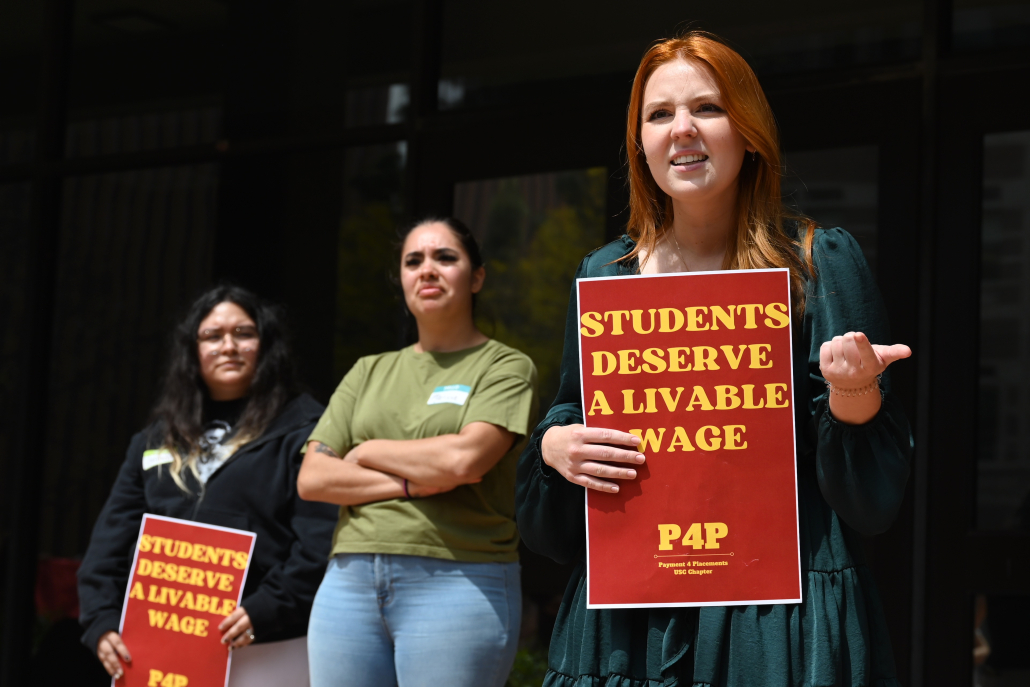
Graduate students in the Dworak-Peck School of Social Work are petitioning the University to compensate them for unpaid internships required by the master’s in social work program, staging a walkout on Tuesday afternoon in support of the cause.
Internships, typically unpaid and intended to arm students with real-world experience, are required by all accredited schools of social work. First-year students at Dworak-Peck are expected to spend a minimum of 16 hours per week on their internships. Second-year students must spend 20.
“We’re doing work that is comparable to salaried employees,” said Katie Sheng, a graduate student studying social work. “Many of us, especially those that are doing … therapy or counseling services, are doing billable hours … Agencies are billing for those hours and profiting off of them.”
Sheng is an organizer at USC’s chapter of Payments for Placements, a movement founded in 2021 by social work students at the University of Michigan seeking to put an end to mandatory unpaid internships in social work programs. “Placements” refers to practicum placements, the formal title for the internships.
Payments for Placements chapters have spawned across the nation at schools including San Diego State University, California State University Fullerton, University of Georgia, New York University and University of Missouri-Kansas City.
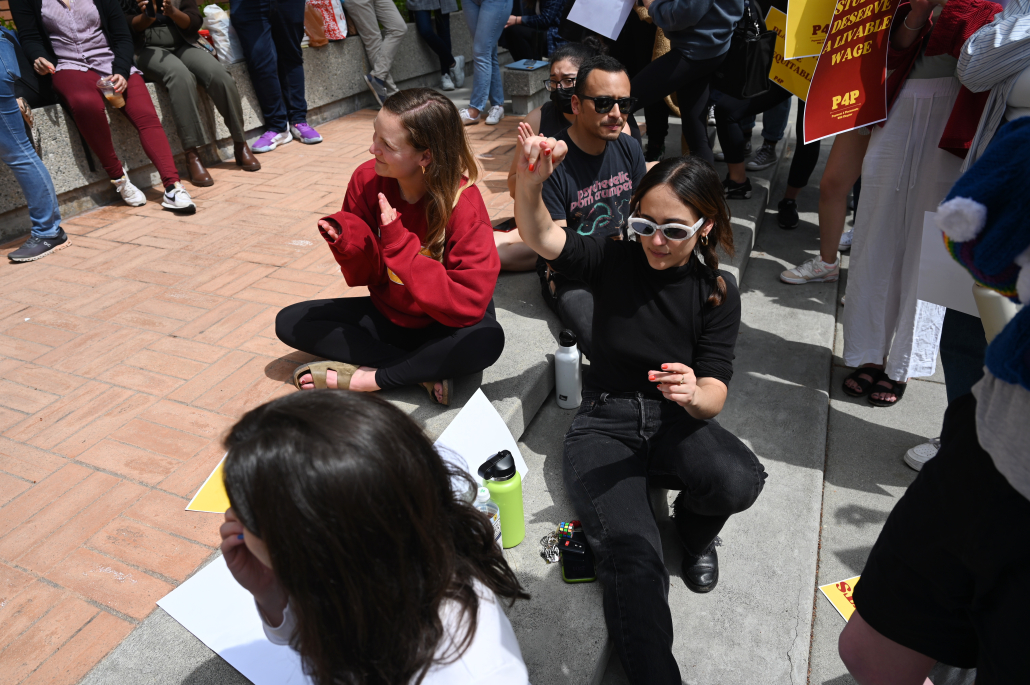
“The request to pay social work students for their practicum placements is a national issue,” Dworak-Peck wrote in a statement Tuesday. “Our school’s leadership has an open dialog with students on this topic and will continue to work closely with them.”
In a typical week, Sheng said she spends nine to 12 hours on her coursework on top of an unpaid 20-hour internship at Homeless Outreach Program Integrated Care System, a housing and homeless services nonprofit. She is also seeking a master’s degree in public administration, which adds to her courseload.
A petition that has garnered 401 signatures at the time of publication — including 309 current students — calls for USC to pay students a “living wage” exceeding Los Angeles County’s minimum wage for their work. Nearly a third of the students enrolled in the master’s program have signed on.
A calculator by the Massachusetts Institute of Technology sets the living wage for L.A. County at $44,142 a year for a single adult.
The petition suggests that compensation could come in the form of expanding the availability of internships participating in the Federal Work-Study Program, USC paying students directly or the agencies offering the internships paying the students themselves. Any compensation for internship work shouldn’t inspire a tuition increase, the petition notes.
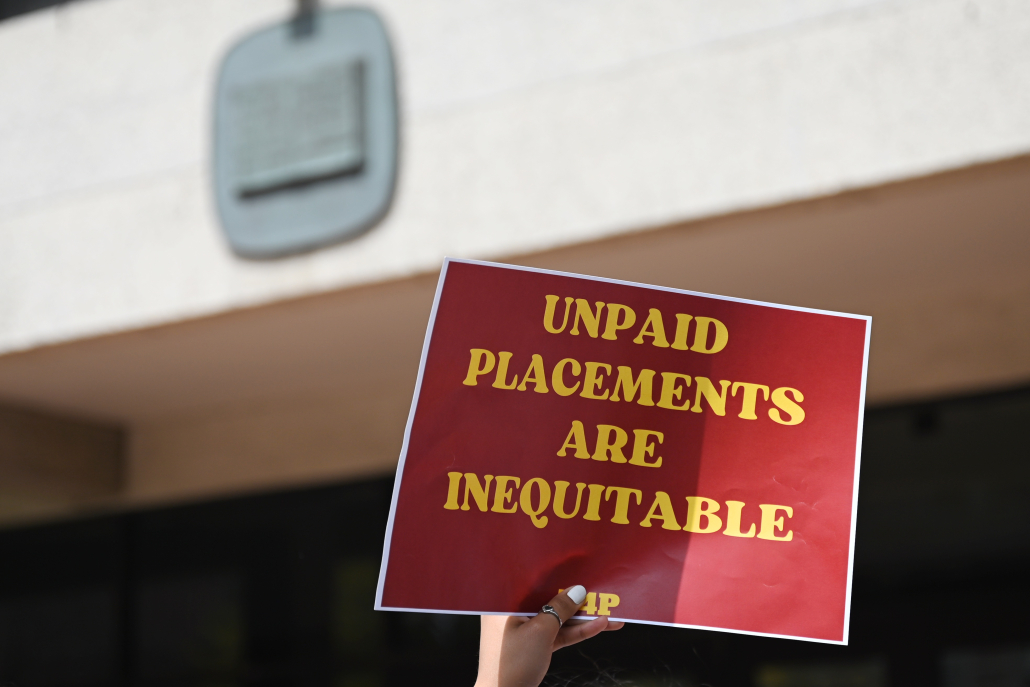
A Dworak-Peck spokesperson said the petition incorrectly implies that students in the master’s program currently receive stipends.
The movement has already gained ground: Earlier this month, students met with interim Dean Vassilios Papadopoulos to arrange a six-member task force charged with exploring the option of compensating students for their internships. The group currently consists entirely of school administrators, though Sheng said it will expand to include students in the future.
Arranging such a task force was one of the petition’s initial demands.
“It looks like there are going to be a lot of challenges in terms of how to execute payment for placements and how to get resources for that,” Sheng said. “The meetings did not check off our box in terms of what we want to do for our end goal; [they’re] a great start.”
The petition sets an April 28 deadline for the University to respond to its demands. Sheng did not say what would happen if USC disagrees.
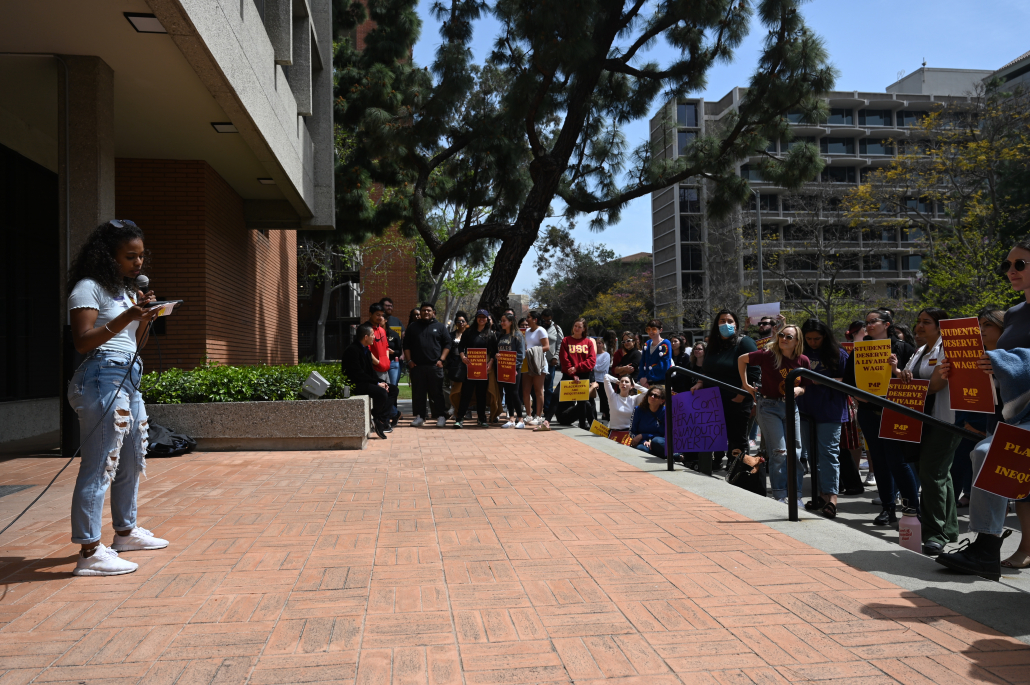
Sam Mistrano, a clinical associate professor at Dworak-Peck, said he has not signed the petition because he is worried that there may be fewer internship opportunities if organizations are required to pay their interns; some nonprofits can’t afford the cost.
He said he will sign the petition if the task force irons out the payment mechanism in a way that will allow for students to have the same range of opportunities to choose from.
“The work that they’re doing is really full-time work,” Mistrano said. “They’re real jobs, not internships in the undergrad sense. A lot of agencies use USC students to fill in for staff — people should be paid for that.”
Tuesday’s rally drew a crowd of roughly 100 on the steps of the Montgomerey Ross Fisher building, composed mostly of students and a few professors and faculty. Only one professor has signed the petition thus far: Scott Darrell, an adjunct professor.
A handful of students spoke about struggling to pay for rent and groceries while having to work jobs on top of their half-time internships and academic course loads. Dozens of anonymous comments appended to the petition argue that Dworak-Peck’s program is inaccessible to students from low-income backgrounds who don’t have the time to work jobs to support their families on top of unpaid internships.
“Social work in general is supposed to be focused on advocacy and fighting for what’s right,” said Hannah Logsdon, a graduate student studying social work. “I feel like the school does a really poor job of following through with that.”

